You’ve just gotten home from the farmer’s market where you couldn't resist digging into that pile of awesome looking kiwis. But now, where to put these odd little fruits? Are they ok in your fruit bowl at room temperature or should they be stored in the refrigerator? Do they need to be kept in a sealed container or do they need air?
Don’t feel bashful for all of your questions about how to store kiwi! Kiwifruits are mysterious in appearance and their storage preferences are no different. We’ll walk you through the process of determining ripeness, how to store kiwi fruits, the best methods to keep kiwi fresh, and more.
Table of Contents
What is Kiwi Fruit?
The kiwi fruit, also known as the Chinese gooseberry, is a small yet mighty member of the fruit kingdom. As its alternate name alludes, this juicy fruit is indeed a type of berry!
The most common kiwi variety is oval shaped with a brown, slightly fuzzy skin on the exterior and a brilliant green flesh speckled with tiny black seeds on the interior. Kiwis also come in varieties that have a golden flesh, purple flesh, as well as tiny, bite-sized varieties known as kiwi berries.
Kiwis are widely considered to be best enjoyed raw, as cooking will dampen their bright flavor and brilliant coloring as well as reduce their nutritional value. Kiwis are often enjoyed in fresh salads, healthy smoothies, and are the perfect size for a snack on the go!
Shopping for the Best Quality Kiwifruits
As with any other fruits, it’s important to look for certain signs of quality when shopping for kiwis. You should choose kiwis that are plump and uniformly smooth on the exterior. Any wrinkling or puckering of the peel is a sign of age which could indicate that the flesh inside has begun to lose moisture. In addition, the skin should be free of blemishes as well as mushy spots, bruises, or cuts.
How to Tell if Kiwi is Ripe
You can test kiwis for ripeness in the same way you would check other fruit such as pears or nectarines, just hold the fruit and give a gentle squeeze with your fingers. Unripe kiwi will be very hard to the touch, whereas a ripe kiwi will be slightly tender when gentle pressure is applied.
How to Tell if Kiwi is Bad
In your fruit travels, you might also encounter kiwis that are overripe or even rotting. How can you tell if kiwi has gone bad?
Kiwi can lose lots of moisture if stored poorly, causing the flesh of the fruit to become extremely dried out. As mentioned above, if the skin is puckered and the fruit seems shriveled, then the flesh inside has likely lost most of its juices and will no longer be good to eat. On the other hand, if a kiwi is presenting as extra juicy and is leaking juices or has mushy spots or mold, this is a sure sign that your kiwi is past its prime.
How to Store Kiwi
When it comes to deciding how to store kiwi, the answer will depend on several factors. First and foremost, are your kiwis ripe or unripe? Secondly, are you planning to eat your kiwis soon or would you like to store them to be enjoyed further down the line? No matter your kiwi situation, we’ve got the storage info for you!
How to Store Ripe Kiwi
If luck is on your side and you’ve managed to score some perfectly ripe kiwis on your shopping trip, your fruit will surely need some extra care and attention when it comes to storage technique. If ripe kiwi is simply left at room temperature, it will just keep right on ripening until it quickly spoils.
In order to halt the ripening process and avoid this sad fate, we'll put the refrigerator to use once again! Place your ripe kiwis in an airtight container and store it in the refrigerator's vegetable or fruit drawers, taking care not to place it near any other ethylene producing foods.
Ethyl-what? That mouthful of a phrase refers to the gas that is emitted from some fruits and vegetables as they ripen such as bananas, apples, and tomatoes, among others. These emissions can trigger the ripening process in other nearby produce as well, posing a danger to your sensitive little kiwis!
Once ripe and in the refrigerator, you can store kiwi fruit for about 5-10 days, depending on their size and moisture content.
How to Store Unripe Kiwi
Chances are high that the kiwi fruits you’ve picked up from the grocery store are leaning more towards unripe, if not completely rock hard! This is because kiwi growers and distributors must account for the transit time of their crops to market, as well as time spent sitting in the produce display just waiting for kiwi fruit lovers like you to come along! If kiwi farmers picked their fruit at ideal ripeness, it would be too far gone by the time it finally arrived in your kitchen, therefore fresh produce is often harvested ahead of its ripeness.
If you have unripe kiwi and would like to keep the fruit in storage for quite some time, your best plan of attack is to actually maintain that unripe status. Simply arrange the kiwifruits in a plastic bag (don't seal it tightly though) and place them right into the vegetable or fruit drawer of your refrigerator. The plastic bag is an important barrier as it helps to prevent moisture loss, but you do want to check on it periodically and wipe up any excess condensation inside the bag as it could encourage mold growth.
The unripe fruit will remain fresh this way for several weeks, possibly even up to a month!
How to Store Cut Kiwi
If you are looking to store kiwi that you have already cut or sliced, then refrigeration is always a must. One of the many remarkable things about kiwi is that it does not oxidize like many other fruits such as apples and peaches, meaning kiwi will remain bright and green!
The texture of cut kiwi however, will take a turn for the worse if not properly stored. Kiwi breaks down and softens as it ages, and this process rapidly accelerates upon exposure to air. Therefore, you should always refrigerate kiwi slices or chunks in a plastic bag or airtight container and refrigerate it, where it will keep fresh for 3-4 days.
How to Ripen Kiwi
So far, we’ve covered how to store kiwi in order to keep it fresh for as long as possible, but what if you’ve got a sudden kiwi craving (understandable) and need to actually hasten the kiwi ripening process? There’s a method for that too!
Remember those ethylene producing fruits we mentioned earlier? These will be your tickets to perfectly ripe kiwi fruit. Just place the kiwis and another piece of fruit known to produce ethylene gas (such as a ripening banana, an apple, or a tomato) in a paper bag. Roll the top down loosely, so as to trap those all-important gases while at the same time allowing for some air flow. Place the bag on the countertop at room temperature but out of direct sunlight any away from the heat producing elements of the kitchen such as the stove and toaster. Leave this setup for 2-3 days, after which your kiwi should be ripe and ready for action!
This method will also work for any unripe kiwis that you have been storing in the refrigerator. You can remove the chilled fruit from refrigeration and place them straight into the same paper bag setup, then just kick back and let ethylene do its job.
How to Freeze Kiwi
When it comes to preserving kiwi for a long time, the freezer is your best friend. You can opt to leave the fruit whole or cut it and freeze the pieces--it's up to you!
Freezing Kiwi Whole
When freezing kiwi, you must first remove the skin. By doing this before freezing, you'll be saving yourself a major headache later on! After being frozen and defrosted, the kiwifruit will be much softer, making it difficult to peel. Once you’ve peeled your kiwi fruits, you can simply place them in a resealable freezer bag and stick them in the freezer.
Freezing Cut Kiwi
Another option is to cut your kiwi before freezing, which is ideal for quick and easy smoothie making! Once again, start by peeling your fruit and then cut it into chunks or slices. Place the fruit pieces on a baking sheet and then place it flat in the freezer to ensure that the pieces freeze individually rather than clumping together. Once the kiwi pieces have frozen solid, you can scoop them off of the baking sheet and right into a freezer bag or airtight container, ready for you to take out and use however many you need at a time.
How Long Does Kiwi Last in the Freezer?
Kiwi will last in the freezer for up to a year. Whether freezing whole kiwi or cut kiwi, be aware that the fruit will not defrost and be quite the same as it was when fresh. Freezing any fresh produce causes it to break down, leaving it softer and with less structure upon thawing. Not the best texture for a fruit salad, but entirely perfect for smoothies, juices, or yogurt topping!
Other Kiwi Questions? We’ve got Answers!
Can You Eat the Skin of the Kiwi?
It might seem surprising, but yes, kiwi skins are good eats! Kiwi skins are often discarded, despite being nutrient rich and high in fiber and vitamin E. If you decide you want to give kiwi skins a shot, it helps to wash them under cool water and rub gently with a clean kitchen towel to remove some of their fuzz. Then, slice or dice your kiwi as usual and enjoy the tasty tart flavor and added health benefits of the skin!
How Do You Peel a Kiwi?
If you decide you'd rather peel your kiwi before eating, you'd still do well to wash it first to remove some of the fuzz, so that it doesn't end up mixed into the fruit. It's easiest to peel kiwi that has been at room temperature. Slice the two ends off of the kiwi, then starting at one end, use a paring knife to carefully remove the skin in a spiral fashion.
Can You Be Allergic to Kiwi?
Kiwi allergy is a real thing! Kiwis contain an enzyme which makes some people prone to an allergic reaction. Oftentimes, people who are allergic to kiwis might be allergic to other tropical fruits such as pineapples, papayas, and bananas. Oddly enough, this allergy also has a correlation with latex allergy!
Final Tips for Storing Kiwi
When deciding how best to store kiwifruit, the first step is to determine if your kiwi is ripe or not ripe by examining and gently squeezing the fresh fruit.
If your kiwis are ripe and ready to go, you can refrigerate them whole for 5-10 days, chopped for 3-4 days, or you can freeze your fruit for extra long lasting storage. If the kiwi is unripe, you can opt either to ripen it with the assistance of other ethylene producing fruit OR you can store it in a way that will delay the ripening process, thereby extending the shelf life of your kiwi.
And it goes without saying that the greatest option of all for those sweet and juicy fresh kiwis, is to simply grab a spoon and get right to work eating them!

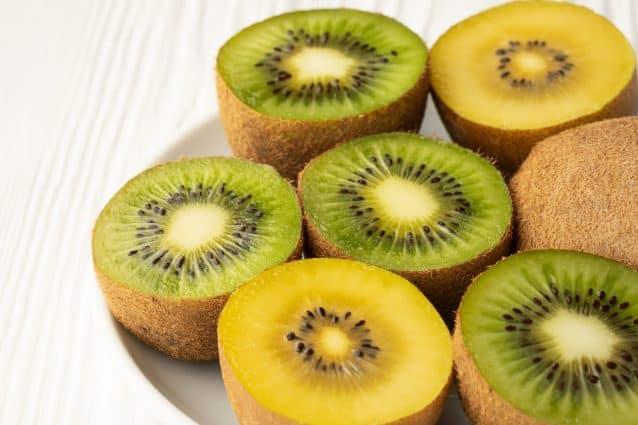
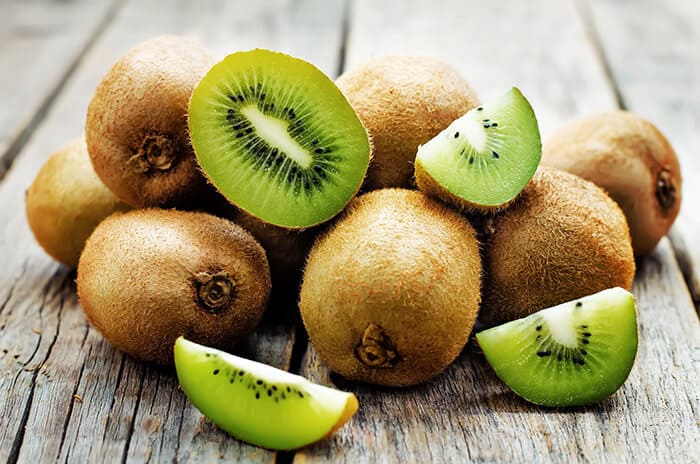
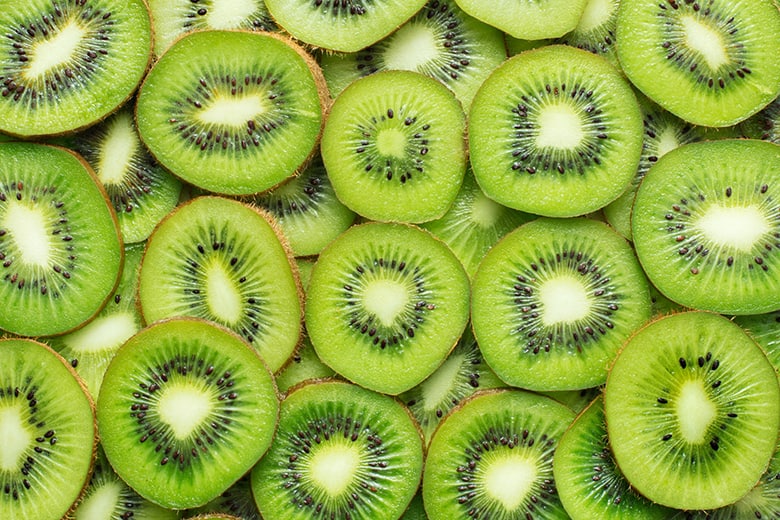
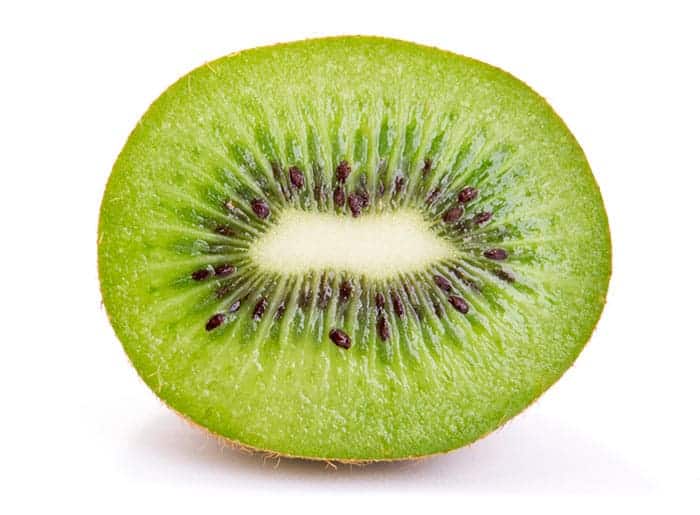
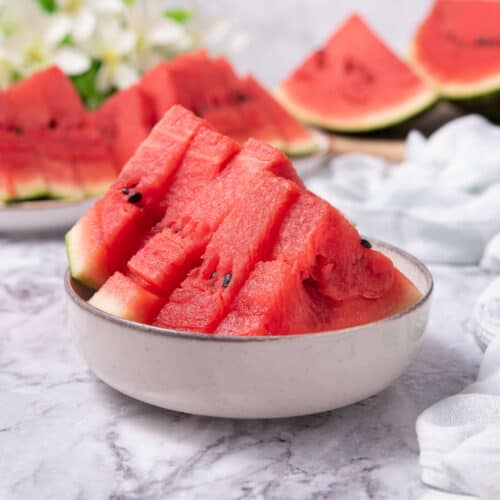
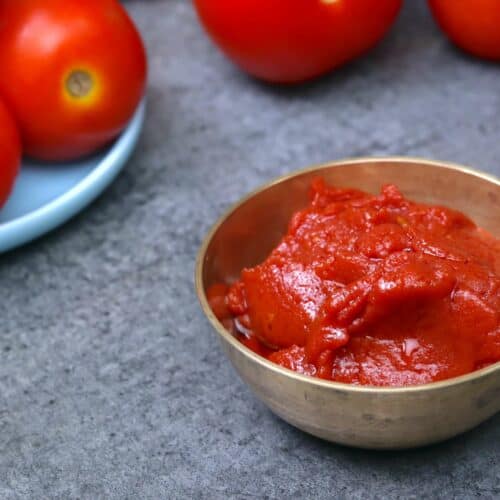

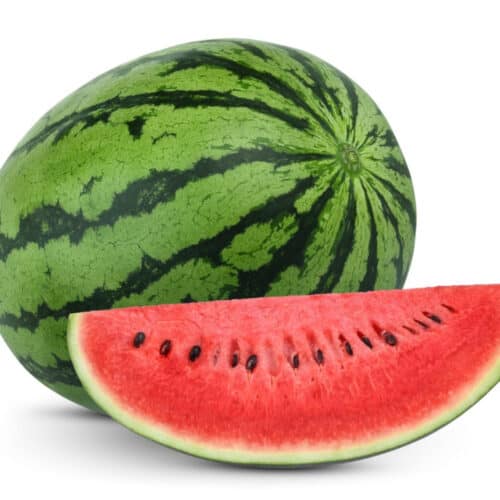


Leave a Reply